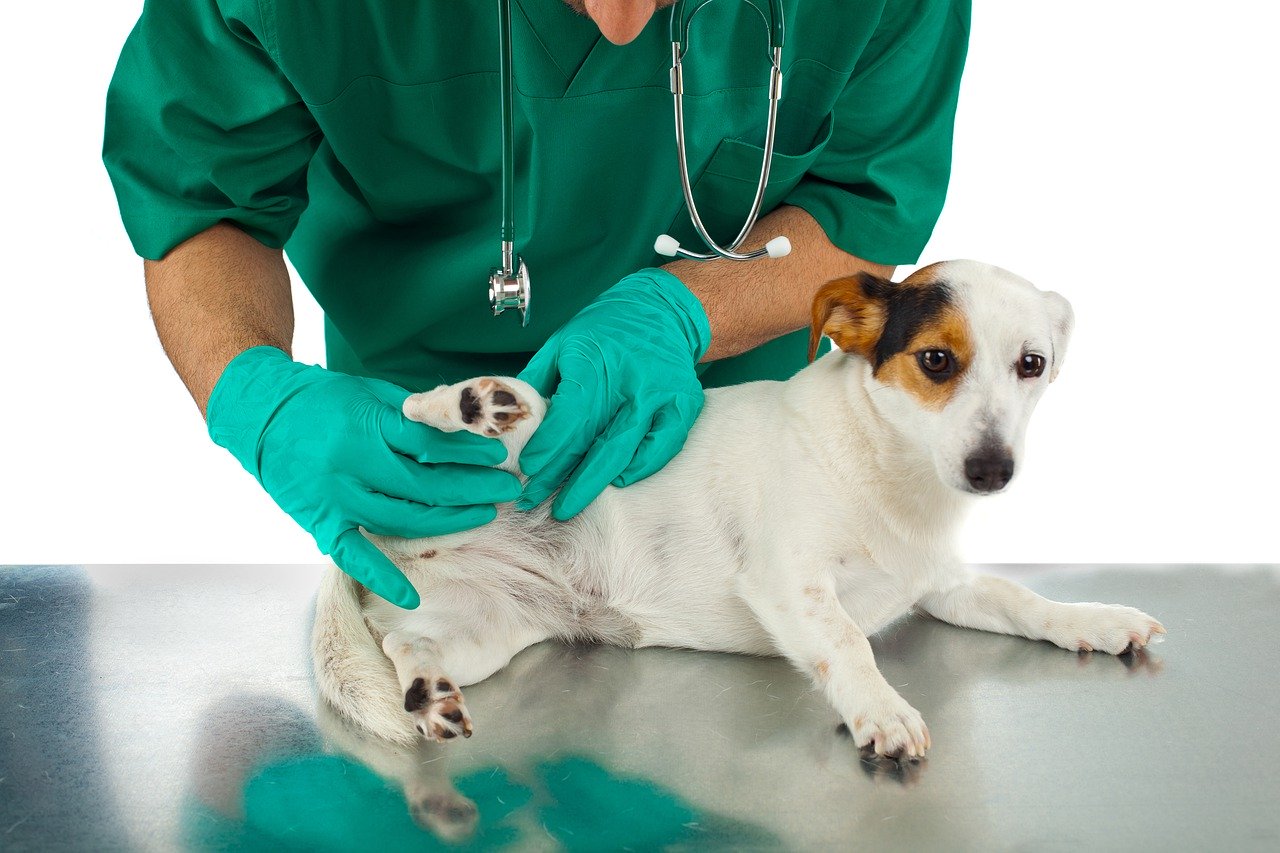Feeding a species-appropriate diet and providing regular exercise are two of the most important things you can do to keep your dog and cat happy and healthy. Aside from a healthy balanced diet, sometimes your pet may need additional support for general health or to mitigate specific conditions they may have.
A wide range of dietary supplements are available to promote overall health and prevent potentially life-threatening conditions from developing. Just like humans, dogs and cats require a variety of vitamins and nutrients to keep them active and alive. The problem with many commercial pet foods is that the supplements used in these foods are often made of synthetic vitamin/mineral sources and may not be effectively bio-available for your pet. When animals are fed the same diet over a prolonged period of time, they can develop nutritional imbalances.
Common symptoms of nutritional imbalances in dogs and cats may include low energy levels, lackluster fur, diarrhea, weight loss, and constant tiredness. Nutritional imbalances can also lead to serious health conditions such as kidney disease and growth disorders. For this reason, it's important for every pet owner to make sure their dog and cat is receiving enough vitamins and nutrients in their diet.
Proactive pet owners know better than to wait until their dog or cat starts suffering from severe health conditions such as osteoarthritis, leaky gut syndrome, and infections before introducing supplements into their diet. They also know that supplements can help them save money on costly veterinary bills over the long term. If you feel that you need to provide additional support for your pet, let’s take a look at a few of the most basic, beneficial supplements you can add to their diet.

Prebiotics, Probiotics, and Digestive Enzymes
Probiotics, prebiotics, and digestive enzymes support your pet's gastrointestinal tract. Your pet’s gut contains a collection of billions of microorganisms, or microbiota, consisting of both good and bad bacteria. The composition of microbes in the gut plays a crucial role in health and disease prevention, as 70% - 80% of dog’s and cat’s immune system resides in the GI tract. A healthy gut microbiome supports a healthy immune system, and when an animal has skin issues, yeast infections, or GI issues, it’s often an indication of an imbalanced microbiota. In addition, antibiotics or stress can kill gut microbiome.
A good quality prebiotic, probiotic, and digestive enzymes can restore and support a healthy gut. The difference between these supplements can be confusing, so here's a quick rundown of each:
Probiotics
Probiotics are beneficial bacteria that work with the good bacteria present in your pet's gut. Together, these types of bacteria help break down and digest food and keep harmful bacteria from spreading and causing illness. Probiotics help maintain healthy levels of good bacteria in the intestine, keeping your pet's digestive system running smoothly, boosting the immune system, and supporting general bodily health.
Prebiotics
Prebiotics serve a different purpose in your pet's digestive tract. Rather than being a type of healthy bacteria, they feed the good bacteria in the gut. For this reason, they are often used together with probiotics to support healthy bacterial growth. A word of caution, for pets with pre-existing gastrointestinal health issues, prebiotics can be damaging to health as they feed the elevated levels of bad bacteria present in an unhealthy gut. As always, consult with your veterinarian before introducing these supplements to your pet's diet.
Digestive Enzymes
Digestive enzymes are specialized proteins that break down and absorb the nutrients in food. The four basic types of digestive enzymes are protease, amylase, lipase, and cellulase. These help break down and digest protein, carbohydrates and starches, fat, and fiber. Enzymes occur naturally in your pet's body, but their production decreases with age.
Some pets are lacking in appropriate levels of digestive enzymes, which can result in poor digestion, reduced immune function and other health complications. Adding digestive enzymes to your pet's diet can be incredibly beneficial for health. Benefits include improved digestion and cellular function, increased nutrient absorption, detoxifying effects, and an improved immune system.
Omega-3 Fatty Acids
Omega-3 fatty acids have wide-ranging positive effects on your dog's and cat’s health. They help support brain development, improve skin and coat health, boost the immune system, reduce inflammation, and more. Good sources of omega-3 fatty acids include fish oil or krill oil. Omega-3 fatty acid supplements for dogs and cats are also readily available.
Glandular Supplements
Glandular supplements are used in the treatment of autoimmune diseases. They are made with animal extracts of the target organs they were created to support. For example, a glandular supplement targeted at the adrenal gland would be manufactured with extracts of the adrenal gland of a healthy animal. Glandular supplements also provide a wide range of essential nutrients. They are ideal for aging animals and those with underlying health conditions.
Joint Supplements
As dogs and cats grow older, they become weaker and more susceptible to joint and bone disorders. Joint degeneration is most common in senior animals, but it can be beneficial to give joint supplements earlier in life as a preventative measure against conditions such as osteoarthritis.
The most commonly used joint supplements for animals are glucosamine and chondroitin. Glucosamine is a naturally occurring compound that helps the body to produce and repair cartilage. It also has anti-inflammatory properties and helps lubricate the joints.
As your dog and cat ages, his body produces less glucosamine. This can result in stiff, painful joints and loss of mobility. Adding a glucosamine supplement to your pet's diet can restore joint health and improve mobility by lubricating stiff joints, repairing degenerated cartilage, and reducing pain.
Chondroitin is another natural substance found in healthy cartilage. It promotes elasticity, helps repair damaged cartilage, and inhibits inflammatory enzymes that can damage the joints. Chondroitin production also decreases with age, so supplementing your pet's diet with this compound can be beneficial for maintaining joint health.
Virgin Coconut Oil
Adding virgin coconut oil to your dog's and cat’s diet is a great way to support their overall health. Here are just a few of the health benefits associated with our favorite oil:
Immune Support
Coconut oil is packed full of healthy medium-chain fatty acids (MCFAs) that have antibacterial, antifungal, antiviral, and antimicrobial properties. These fatty acids help reduce susceptibility to illnesses and infections, and provide protection against invasive microbial action.
The most abundant MCFA found in coconut oil is the super ingredient lauric acid. CocoTherapy Organic Virgin Coconut Oil has a minimum lauric acid content of 53.28%. Lauric acid can benefit your pet's health in a number of ways, these include protecting the skin and coat, and keeping the gastrointestinal tract healthy. It's also beneficial for boosting the immune system.
Lauric acid is converted into a molecule called monolaurin in the body, which effectively kills disease-causing microorganisms without destroying beneficial bacteria. Monolaurin protects the immune system, helping pets to maintain good health and quickly fight off disease when it strikes. This is especially important for older pets as their immune system naturally weakens with age. Young and older animals enjoy improved immunity from ingesting virgin coconut oil or topical applications. When it is applied to sores or wounds, it helps the wound heal faster and protects it from infections.
Brain Health
Supplementing your pet's diet with virgin coconut oil from an early age is a safe and effective way to guard against cognitive decline in later life. Coconut oil serves as yummy brain food because it's a ready source of ketones. Ketones are energy-producing molecules made from fats. The body can make them from stored fat, or from special fats known as medium-chain triglycerides (MCTs).
Around 63% of the fatty acids in coconut oil are MCTs. Supplementing your pet's diet with a high-quality virgin coconut oil or an MCT oil, such as TriPlex MCT-3 can raise blood ketones to levels that support brain growth and development and prevent degenerative processes.
Ketones bypass the defect in glucose metabolism and provide the brain with the energy it needs to function and develop properly. They also play a significant role in the maintenance, repair, and growth of brain cells. Ketones serve as 'super fuel' for the brain and are much more relevant than glucose is to brain health. To feed the brain with ketones, blood glucose needs to be low. This can be achieved by feeding your dog and cat a species-appropriate or ketogenic diet.
Vitamin and Mineral Absorption
Coconut oil contains medium chain fatty acids (MCFAs) such as lauric acid. These healthy fats are easily digestible in the gut, and help the body to absorb the nutrients and vitamins from food more efficiently.
Virgin coconut oil is a healthy saturated fat, and is proven to be superior in enhancing nutrient absorption. This means that with coconut oil as part of their diet, your dog and cat will be able to absorb more important nutrients from the foods they eat.
Many of the vitamins and minerals that keep your pet's body healthy are fat soluble. These include calcium and magnesium, and vitamins A, E, K and D. Vital proteins and b-amino acids are also fat soluble. When feeding coconut oil to your dog and cat, be sure to start off with small amounts to avoid loose stools.
If you decide to supplement your pet's diet with coconut oil, be sure to give it in moderation as part of a balanced, species-appropriate diet.
In addition, always remember to choose a high quality, therapeutic-grade oil such as CocoTherapy coconut oil. Our oil is sourced from our USDA-certified organic family farm in the Philippines, and carefully manufactured in our own facility.
Check out our Health Benefits page to discover more about the amazing power of coconut oil.
Please note, cats are not small dogs. When choosing a supplement for your dog or cat, check the label to make sure it is appropriate for the intended species. Always check with your vet before giving your dog or cat any supplement.




